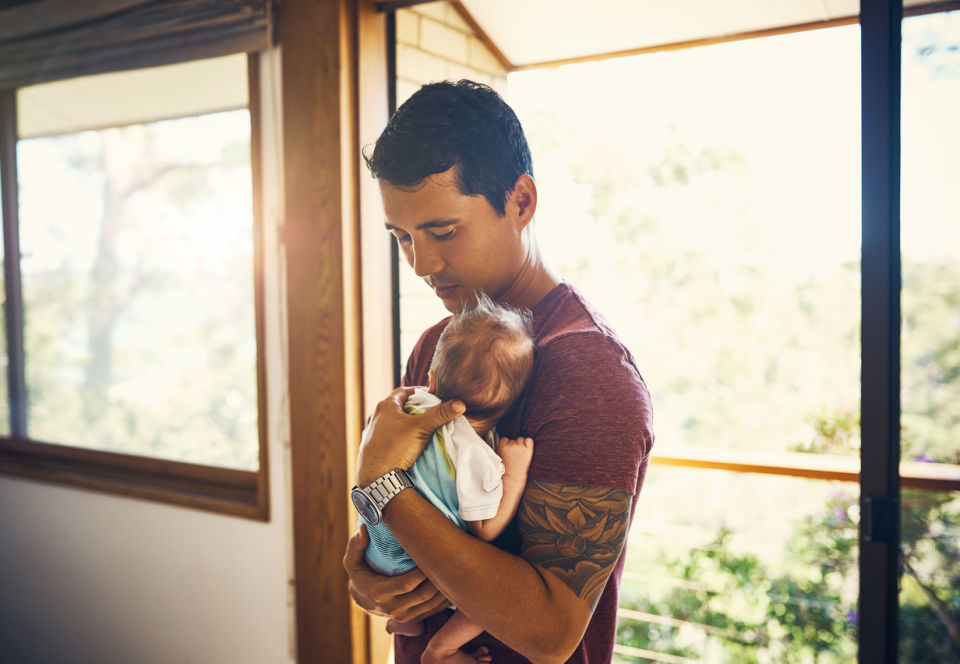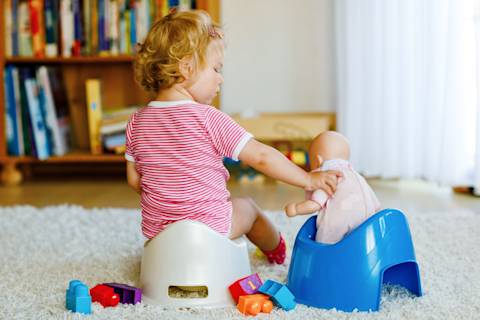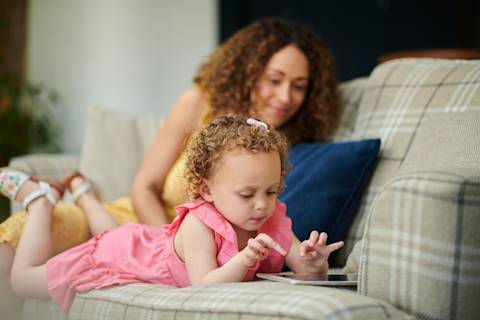We all want to see our little ones realize their potential and live fulfilling lives. By providing safe, stable, and nurturing relationships and environments for your child, you can support their development and help them thrive.

Children remind us of the unlimited potential of the future, and we do everything we can to help our children thrive. Unfortunately, we can’t always shield them from facing adverse childhood experiences, or stressful situations children can be exposed to. As caregivers, we have the power to stop the effects of adverse childhood experiences and set our children up for healthy, happy, and successful futures.
What are adverse childhood experiences?
Adverse childhood experiences, also known as ACEs, are potentially traumatic events that occur in childhood. ACEs are often divided into three categories: abuse, household challenges, and neglect. Some examples include caregiver mental illness, substance use in the household, family violence, or parents divorcing. ACEs affect all communities and cross racial, ethnic, socioeconomic, gender, and geographic lines. In fact, about two-thirds of us here in California have at least one ACE.
If we don’t take action, ACEs can impact a child’s health and development.
ACEs can “get under the skin” and affect children’s bodies, brains, and behavior from infancy all the way to adulthood. This is a result of toxic stress, or stress on the body over a long period of time. When we experience stressful situations, our bodies are flooded with hormones that cause a flight, fight, or freeze response to help us deal with the stressor. Once the stressor has been dealt with, the body goes back to normal.
However, toxic stress occurs when children experience a stressor continuously over time with no chance to shut off the stress response. This constant state of stress can cause wear-and-tear on the body after long periods. Think of it like revving a car engine over and over again for weeks at a time. Eventually, the engine will wear out.
Over time, toxic stress can affect the development of a child’s brain, by impacting their ability to learn, focus, and make decisions. Toxic stress can also affect a child’s body by delaying growth and increasing the likelihood of illness. Children who grow up with toxic stress might also have difficulty forming healthy and stable relationships.
We can prevent toxic stress by replacing ACEs with positive experiences.
Just because a child has experienced ACEs doesn’t mean they will be impacted by toxic stress. There are many ways caregivers and parents can buffer the effects of ACEs, helping their child avoid lasting toxic stress and experience successful, happy, healthy childhoods and futures. Creating positive childhood experiences (PCEs) for your little one helps reduce the effect of ACEs:
One of the most important ways to protect your child is creating a safe, stable, and nurturing environment. When children feel safe and stable in their home, their bodies aren’t constantly fighting off stress.
Creating a safe, stable environment can include establishing regular routines for mealtime, bedtime, bath time, and more. When children have a sense of what’s coming next in their day, they feel more in control, have fewer power struggles with their parents, and are less likely to throw a temper tantrum.
Children thrive when they have regular, positive relationships with the adults in their lives. Parents and family members can have an incredibly beneficial impact on a child’s life and can help set them up for success in their future relationships.
Doing fun, positive activities together creates new connections in your child’s brain and increases your bond with them. Try out these new activities with your baby, toddler, and preschooler. Even including your little one in everyday family activities, like preparing snacks and walking around the neighborhood, can give them the attention they crave and help them feel like they are part of things.
Snuggle up and read together. Reading with your child is a great way to give them attention and grow your bond with them while helping develop their language and vocabulary skills. Check out this article for ways to find free children’s books.
Helping children work through problems builds their ability to cope with difficult situations. Allowing them the space to express their feelings fosters healthy emotional expression and makes them feel valued.
Create, keep track of, and maintain rules to provide a safe and stable environment for them.
Importantly, ACEs do not cause irreparable damage. Children and adults are resilient and can take steps to heal and have healthy, happy, and successful futures. Visit our previous article to access some helpful resources.







